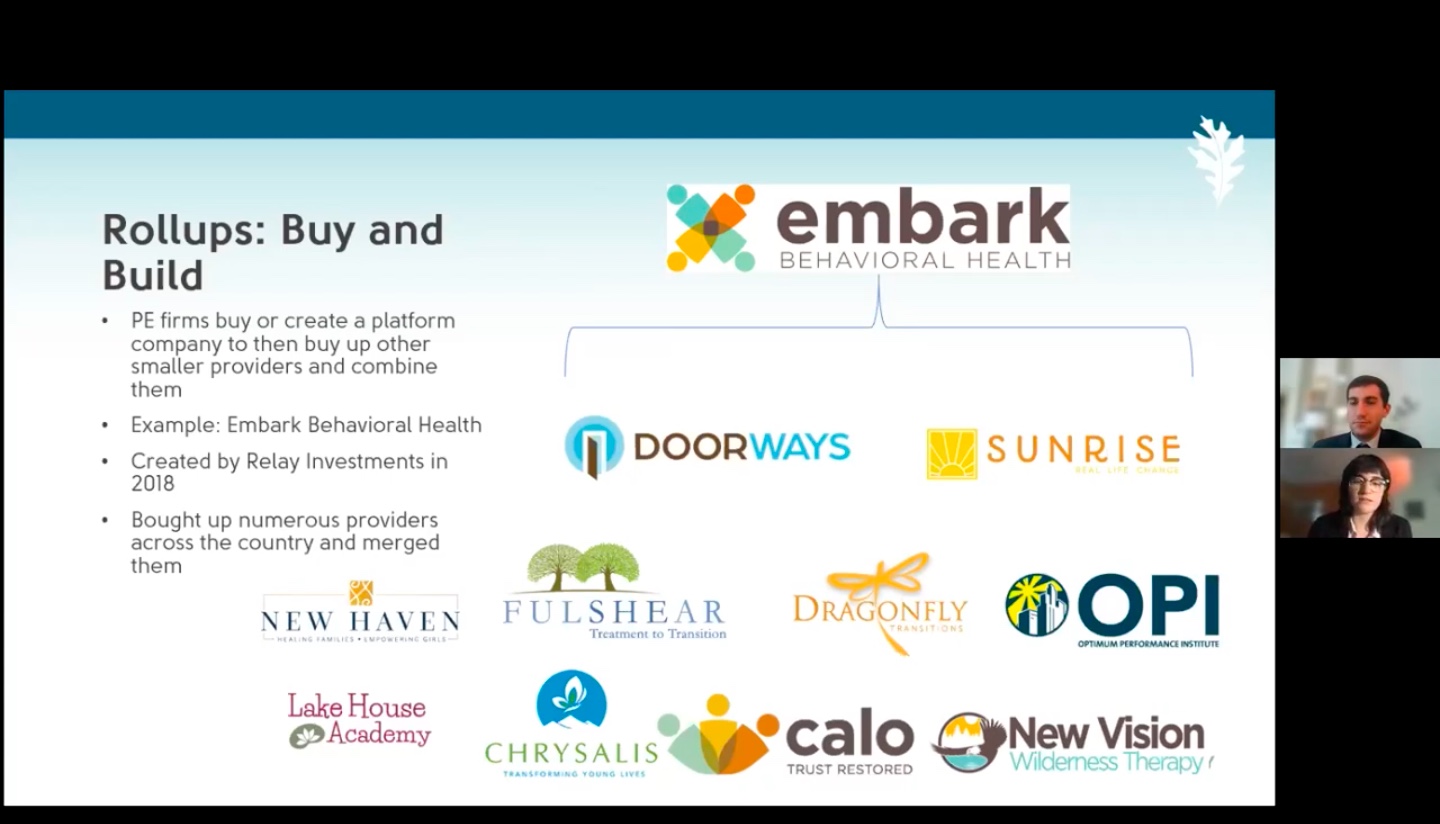
PESP Participates in National Juvenile Justice Network Workshop on Youth Behavioral Health Services
June 8, 2022
PESP Healthcare Research and Campaign Manager Eileen O’Grady participated in a workshop hosted by National Juvenile Justice Network (NJJN) and the National Disability Rights Network (NDRN) to discuss the recent explosion of private equity investment in behavioral health. She presented alongside Cory Bernstein, Staff Attorney for Disability Rights New Jersey.
NJNN, May 18, 2022: Follow the Money: Private Equity in Youth-serving Systems
Behavioral health has become one of the most popular sectors of healthcare for private equity firms to invest in, with private equity buyouts totaling more than half of all the acquisition activity in behavioral health in 2020.
O’Grady explained that as private equity firms have been investing in behavioral health, they have bought up youth services such as group homes, foster care companies, psychiatric facilities, wilderness camps, detention centers, and addiction treatment programs.
Because behavioral health is an incredibly fragmented industry with about 19,000 individual companies operating in the space and no one company controlling more than a 5% market share, private equity firms have plenty of opportunity to buy up lots of small companies, combine them, and sell the combined company at a profit.
Recent federal policy changes and state level coverage expansions have made the industry more attractive by increasing payors and creating more revenue streams. There is also greater demand and higher utilization of behavioral health services. And crucially, a fragmented and deficient regulatory scheme for inpatient behavioral health services means that there is little accountability for facilities and companies that put residents at risk.
O’Grady also explained private equity’s roll-up strategy, when a private equity firm buys or creates a platform company which acquires multiple other smaller companies in a particular market sector and combines them, and then sells them at a profit.
She described the process of leveraged buyouts, when private equity firms use substantial debt against a company to acquire that company. Private equity firms take a very active role in operations, steering their acquisitions toward the goal of immediate profit maximization for investors – prioritizing the doubling or tripling of their investment in 4-7 years. This is made worse with dividend recapitalizations, when private equity firms add debt to their portfolio companies’ balance sheets in order to collect dividends for themselves.
Impacts of these behaviors include reduced staffing, filling beds without adequate staffing ratios, underpaying employees which results in high-turnover and understaffing, overreliance on unlicensed staff to reduce labor costs, failure to provide adequate training, cutting services/programs, and failing to invest in maintaining facilities, which can lead to unsafe or squalid living conditions.
Cory Bernstein went on to address the regulatory challenges that make holding private equity firms and the facilities they own accountable, including limited transparency and financial regulation coupled with insufficient enforcement of the treatment and reporting rules that do exist.
Bernstein also pointed out the difficulty of regulating companies with significant geographic and payor diversity without meaningful federal regulation, which allows private-equity-owned companies – which generally operate regionally and nationally – to overwhelm the oversight agencies that are almost exclusively at the state level.
For more information on private equity’s role in behavioral health and youth services, please see:
- The Kids Are Not Alright: How Private Equity Profits Off of Behavioral Health Services for Vulnerable and At-Risk Youth (February 2022)
- Understaffed, Unlicensed, and Untrained: Behavioral Health Under Private Equity (September 2020)
- Desperation without Dignity: Conditions of Children Placed in For Profit Residential Facilities (October 14, 2021)
